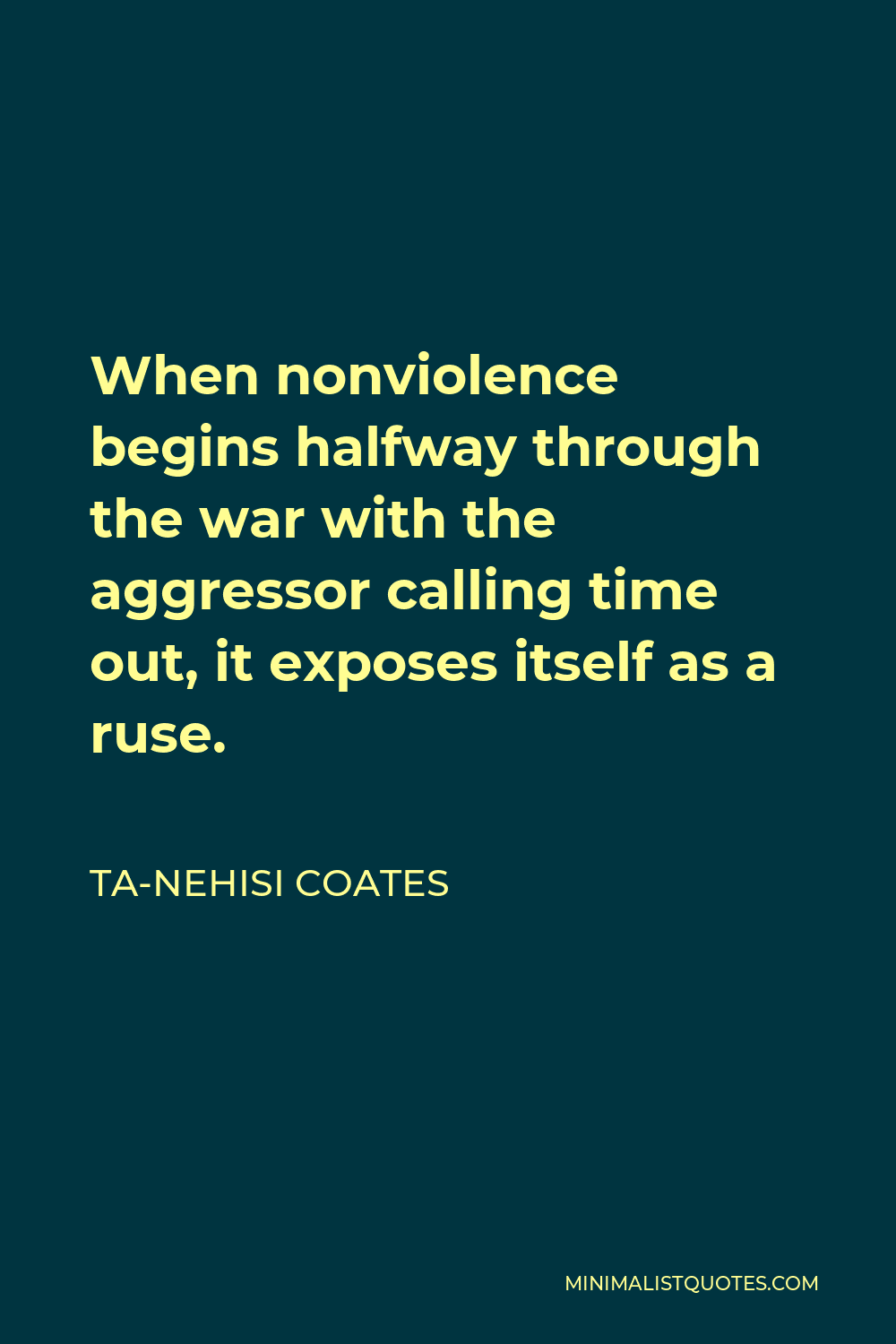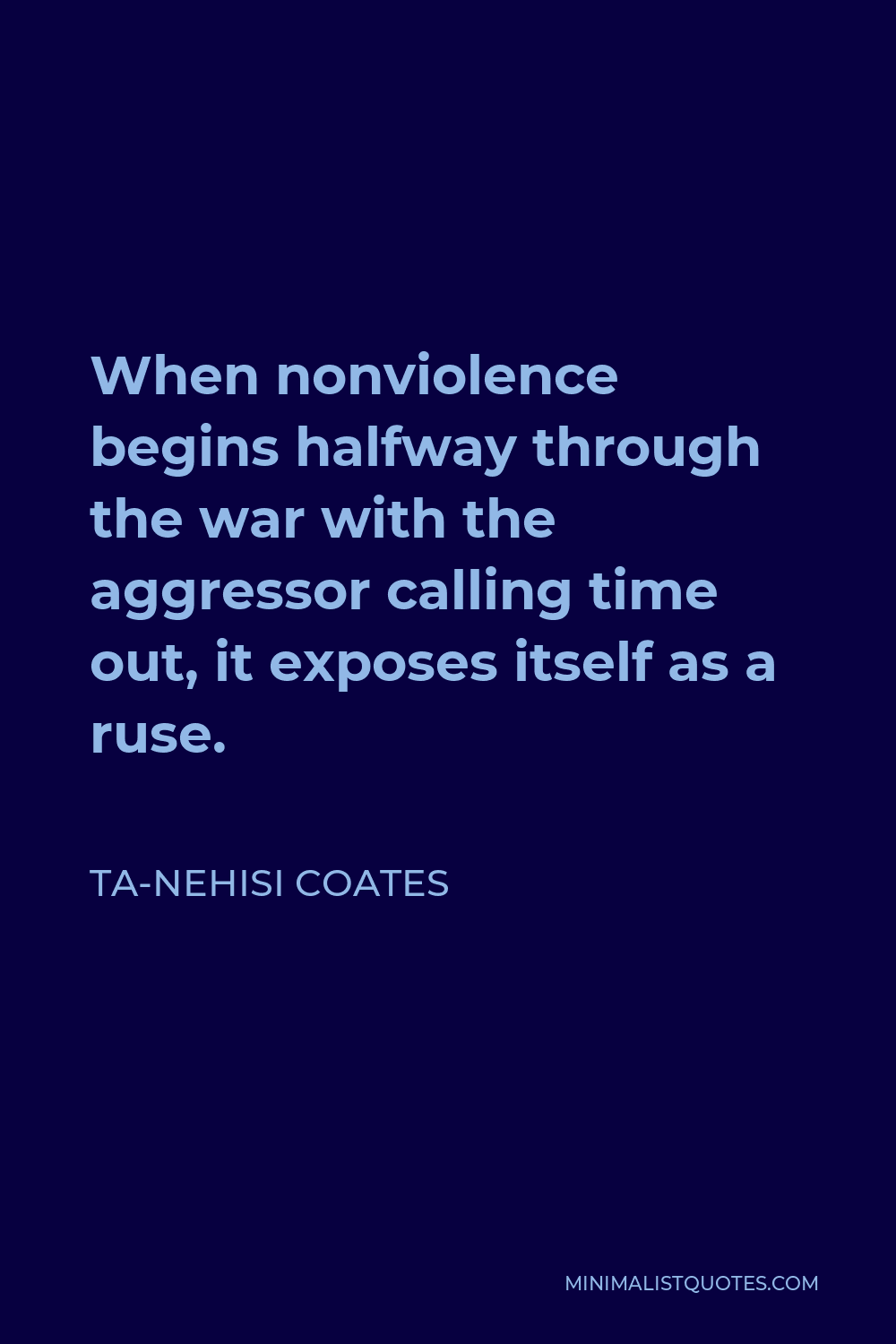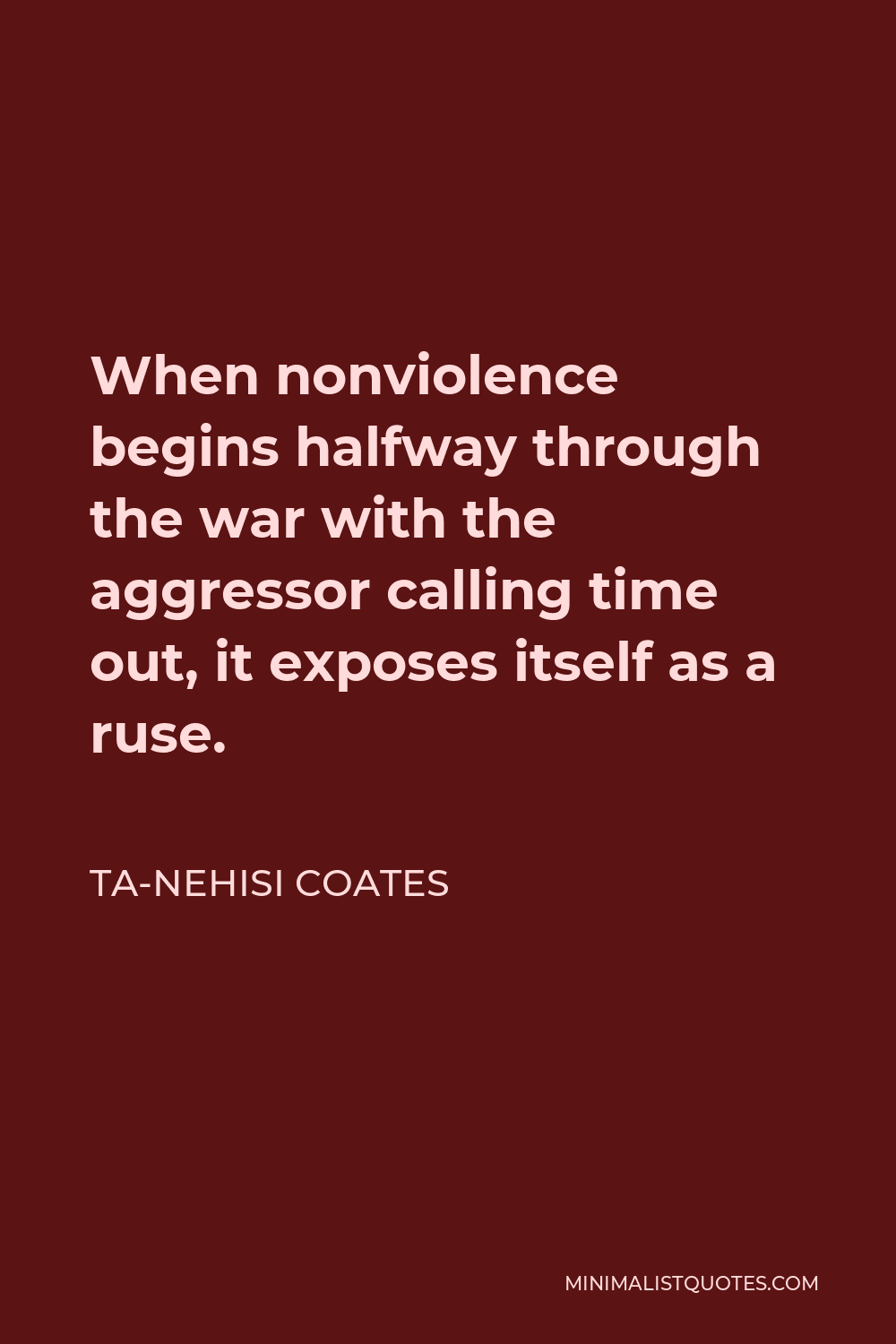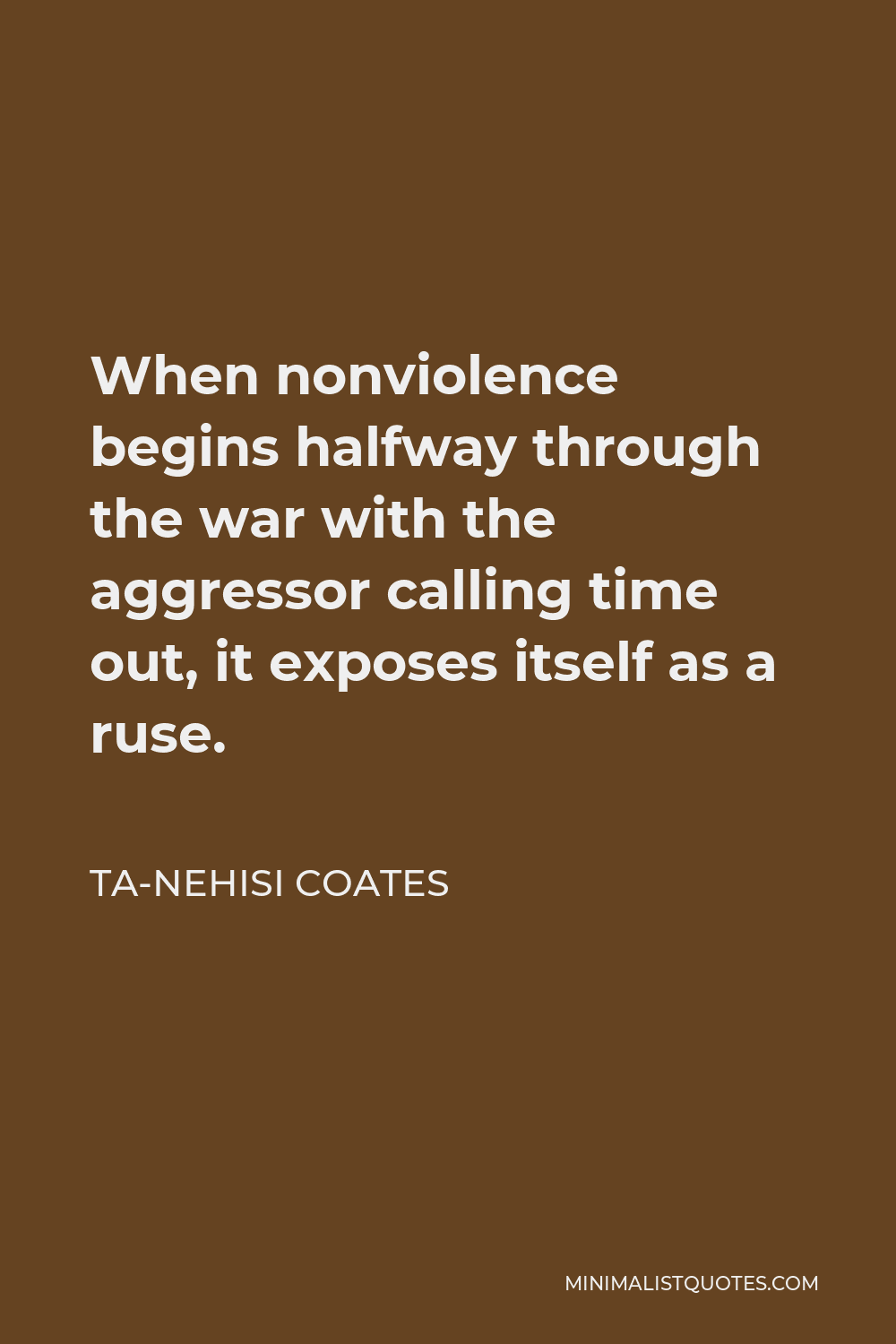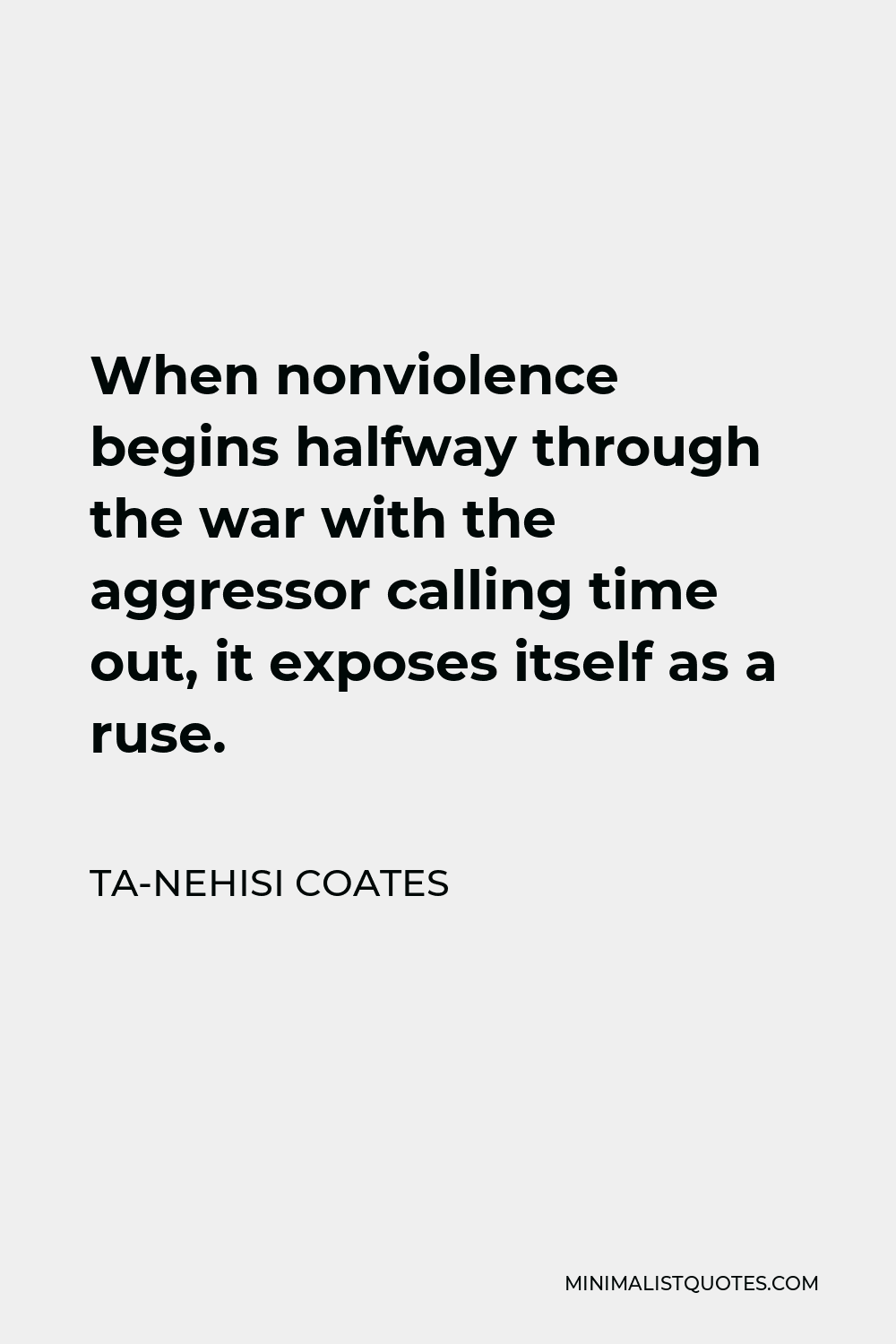I think the president [Barack Obama] adopted some of that same language, but took it into the White House.
TA-NEHISI COATESWhen nonviolence begins halfway through the war with the aggressor calling time out, it exposes itself as a ruse.
More Ta-Nehisi Coates Quotes
-





![Ta-Nehisi Coates Quote - I think the president [Barack Obama] adopted some of that same language, but took it into the White House.](https://minimalistquotes.com/images/i-think-the-president-barack-obama-adopted-some-of.jpg)
-





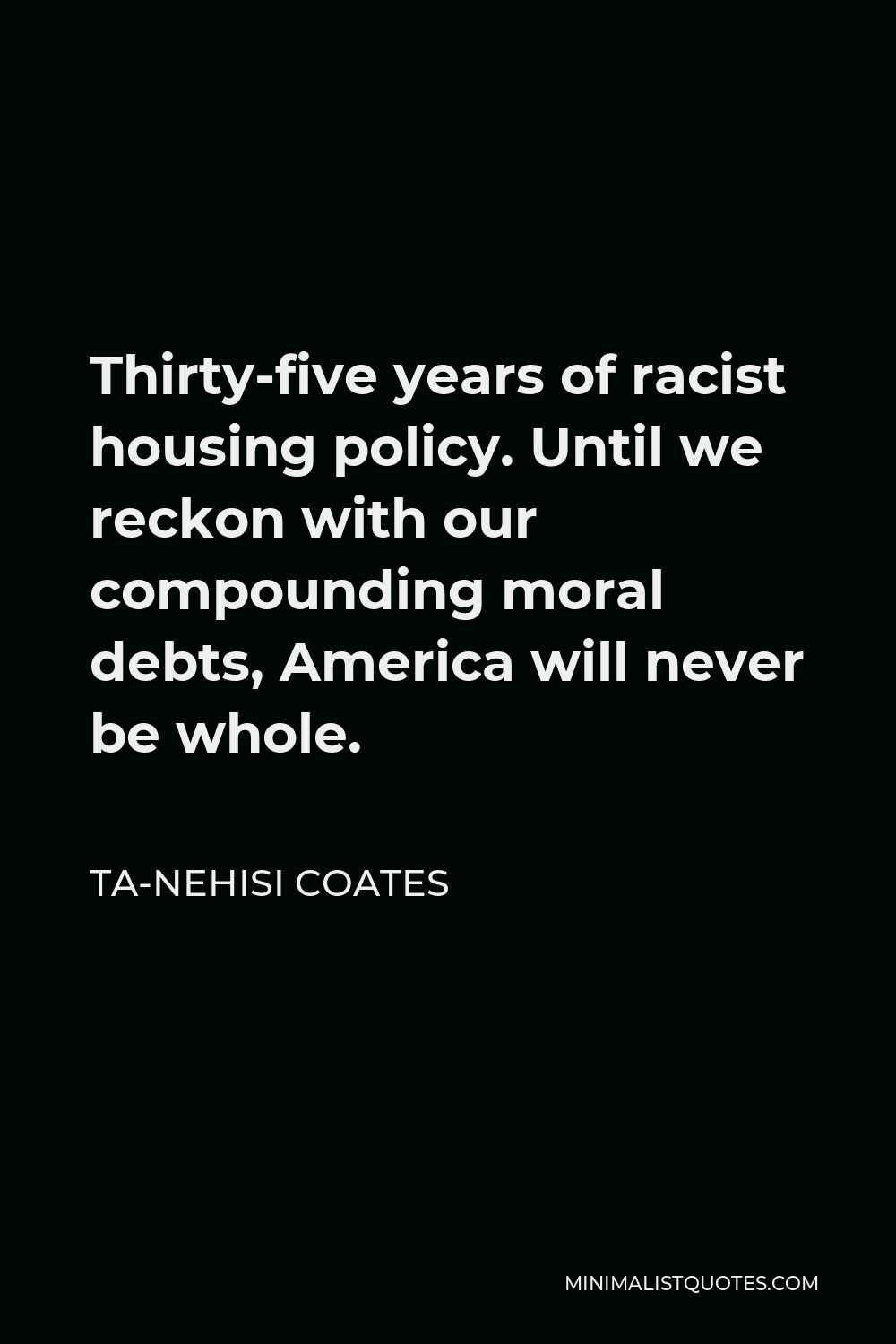
Thirty-five years of racist housing policy. Until we reckon with our compounding moral debts, America will never be whole.
TA-NEHISI COATES -





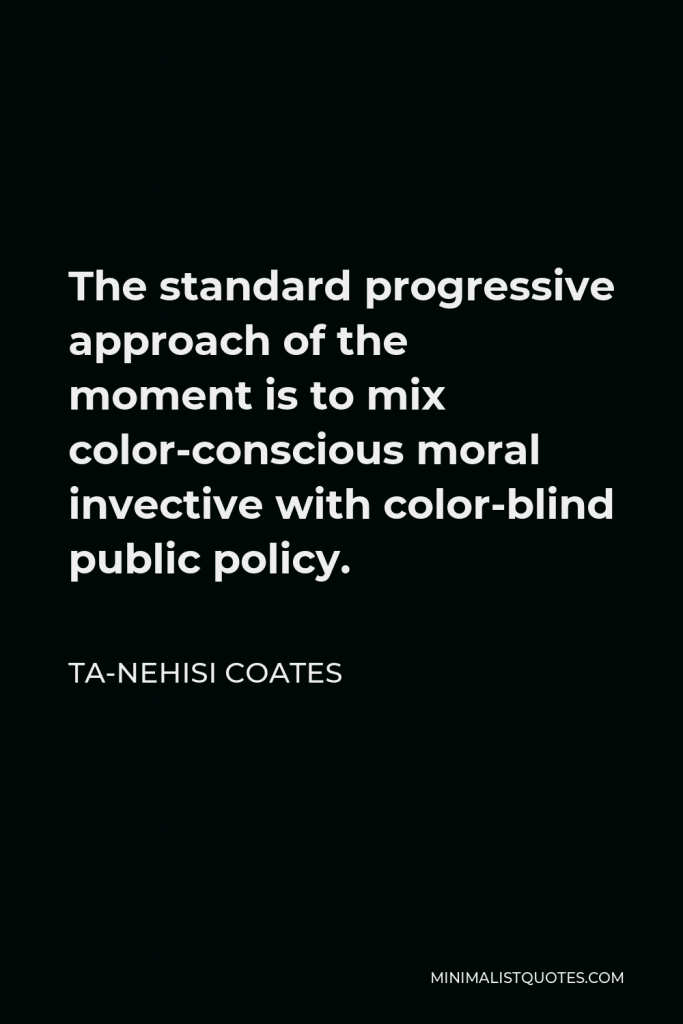

The standard progressive approach of the moment is to mix color-conscious moral invective with color-blind public policy.
TA-NEHISI COATES -





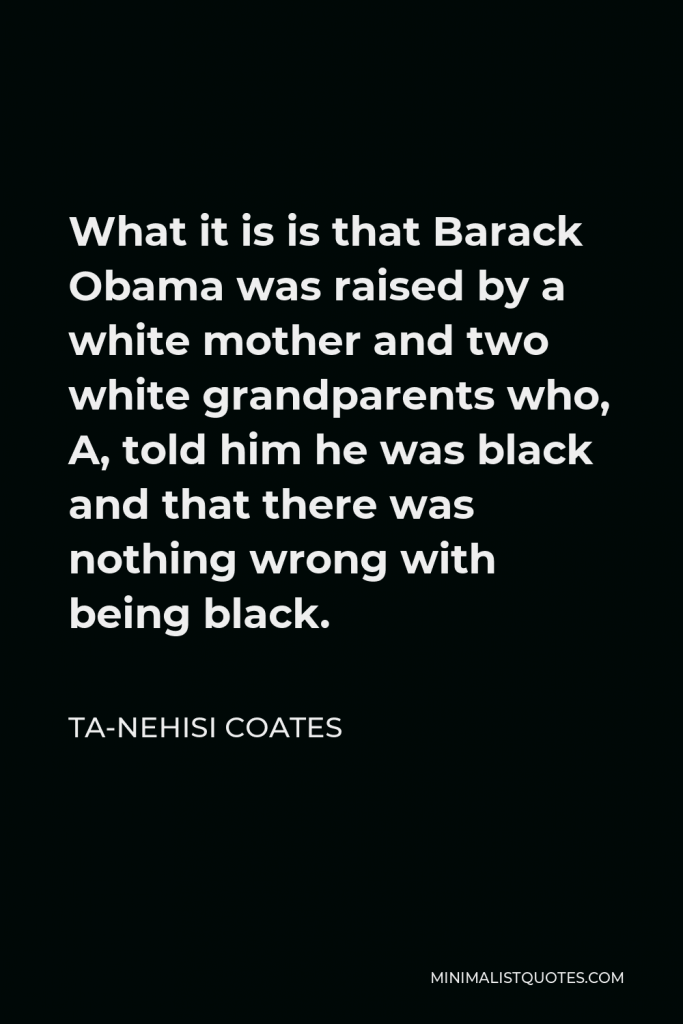

What it is is that Barack Obama was raised by a white mother and two white grandparents who, A, told him he was black and that there was nothing wrong with being black.
TA-NEHISI COATES -





![Ta-Nehisi Coates Quote - [E]mpathy – not squishy self-serving conflict avoidance – is the hand-maiden, not the enemy, of reason and intellectual inquiry.](https://minimalistquotes.com/wp-content/uploads/2022/10/empathy-not-squishy-self-serving-conflict-avoidanc-683x1024.jpg)

[E]mpathy – not squishy self-serving conflict avoidance – is the hand-maiden, not the enemy, of reason and intellectual inquiry.
TA-NEHISI COATES -







The greatest reward of this constant interrogation, confrontation with the brutality of my country, is that it has freed me from hosts and myths.
TA-NEHISI COATES -





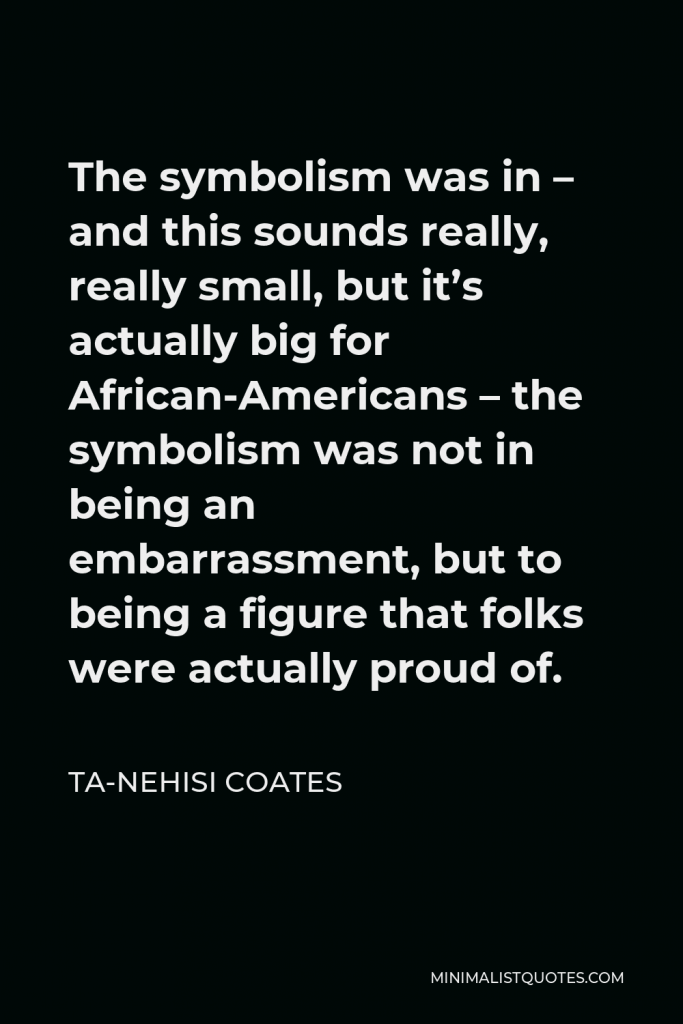

The symbolism was in – and this sounds really, really small, but it’s actually big for African-Americans – the symbolism was not in being an embarrassment, but to being a figure that folks were actually proud of.
TA-NEHISI COATES -







Lot of folks like to mock dumb history, and pretend it’s just a few idiots. Isn’t. It’s the country.
TA-NEHISI COATES -





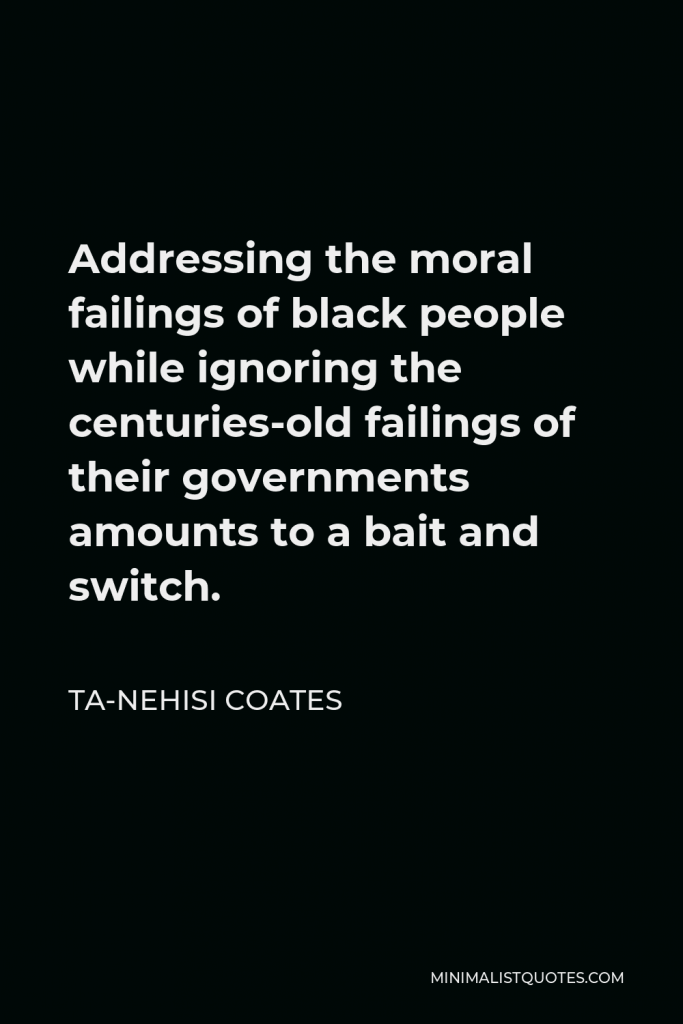

Addressing the moral failings of black people while ignoring the centuries-old failings of their governments amounts to a bait and switch.
TA-NEHISI COATES -





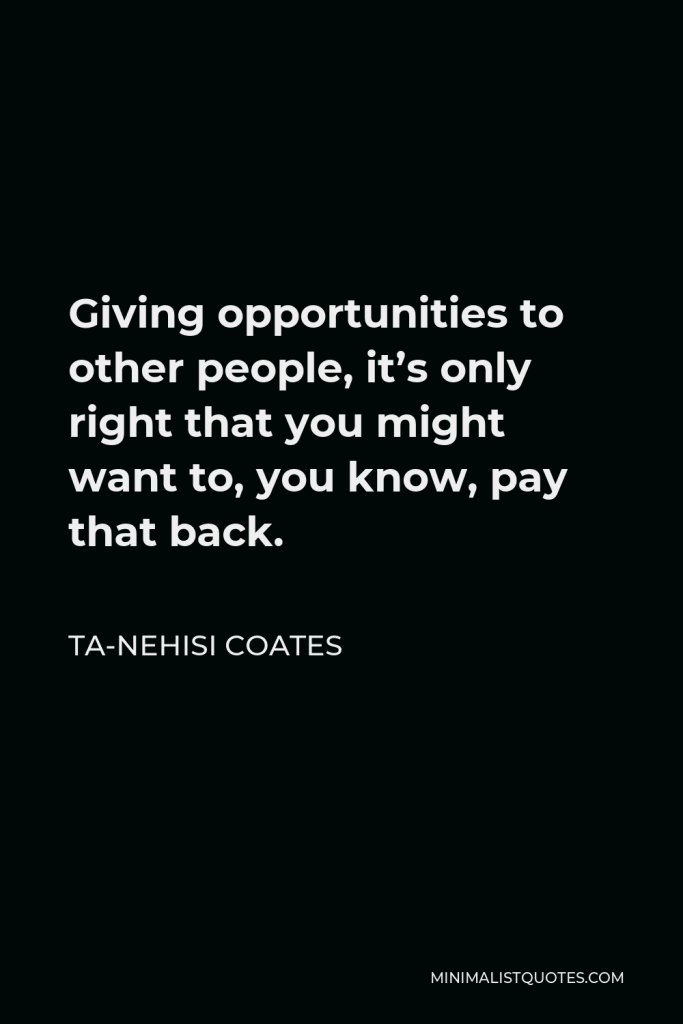

Giving opportunities to other people, it’s only right that you might want to, you know, pay that back.
TA-NEHISI COATES -





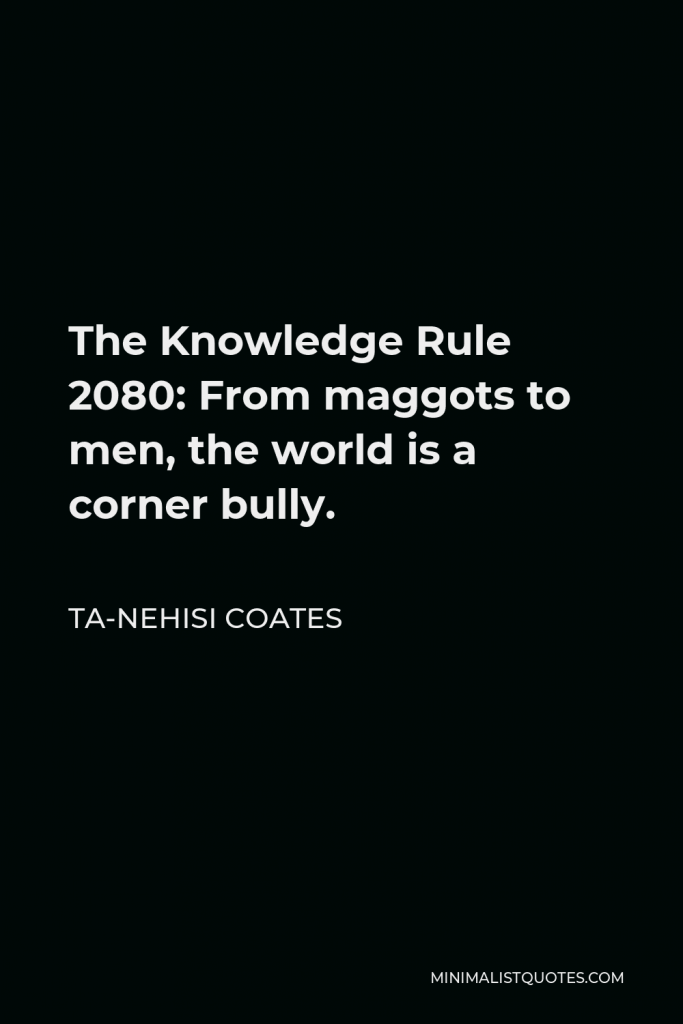

The Knowledge Rule 2080: From maggots to men, the world is a corner bully.
TA-NEHISI COATES -





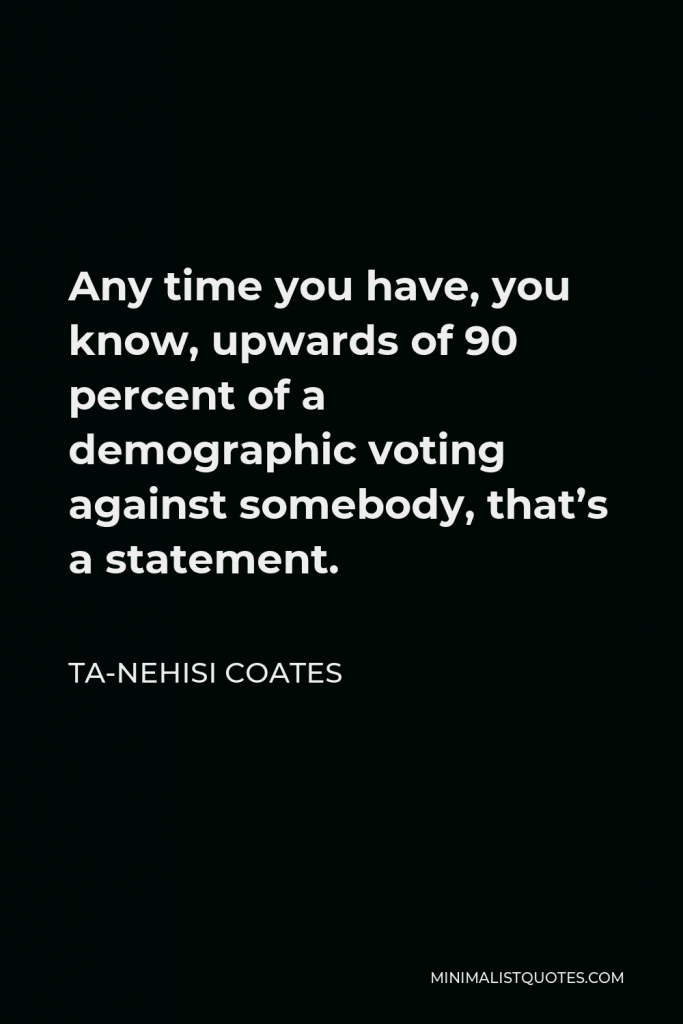

Any time you have, you know, upwards of 90 percent of a demographic voting against somebody, that’s a statement.
TA-NEHISI COATES -







I was a black boy at the height of the crack era, which meant that my instructors pitched education as the border between those who would prosper in America, and those who would be fed to the great hydra of prison, teenage pregnancy and murder.
TA-NEHISI COATES -





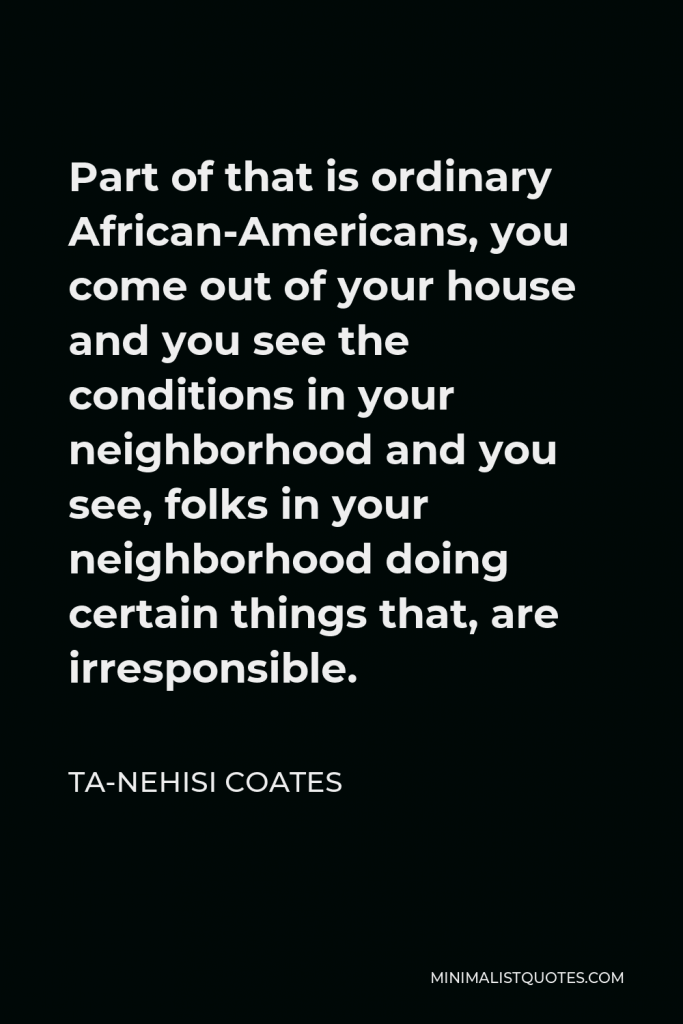

Part of that is ordinary African-Americans, you come out of your house and you see the conditions in your neighborhood and you see, folks in your neighborhood doing certain things that, are irresponsible.
TA-NEHISI COATES -





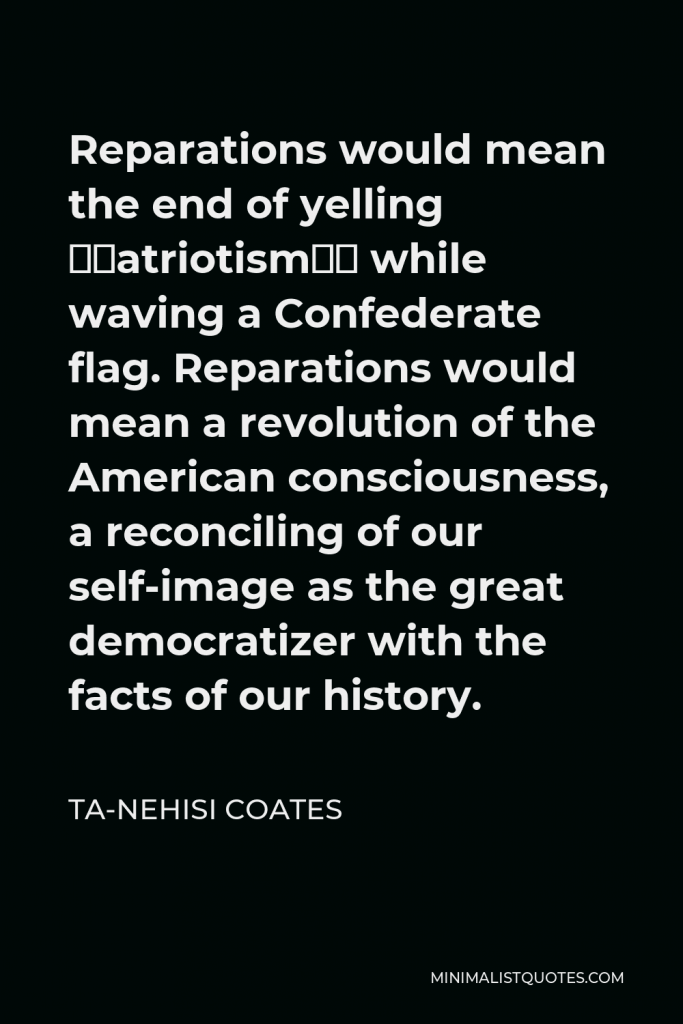

Reparations would mean the end of yelling “patriotism” while waving a Confederate flag. Reparations would mean a revolution of the American consciousness, a reconciling of our self-image as the great democratizer with the facts of our history.
TA-NEHISI COATES -





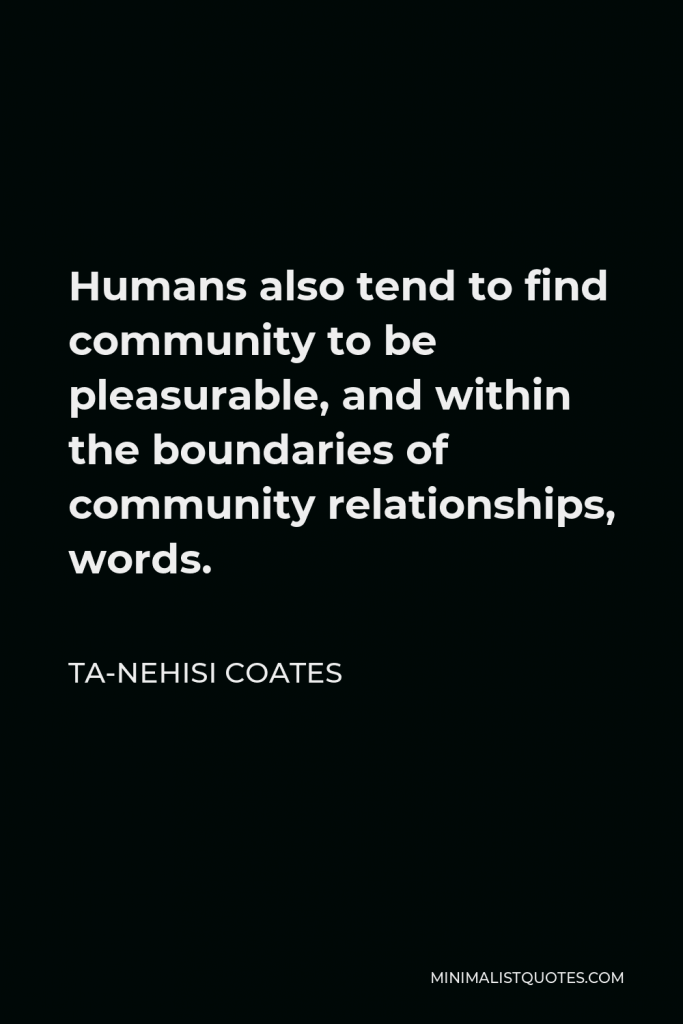

Humans also tend to find community to be pleasurable, and within the boundaries of community relationships, words.
TA-NEHISI COATES

